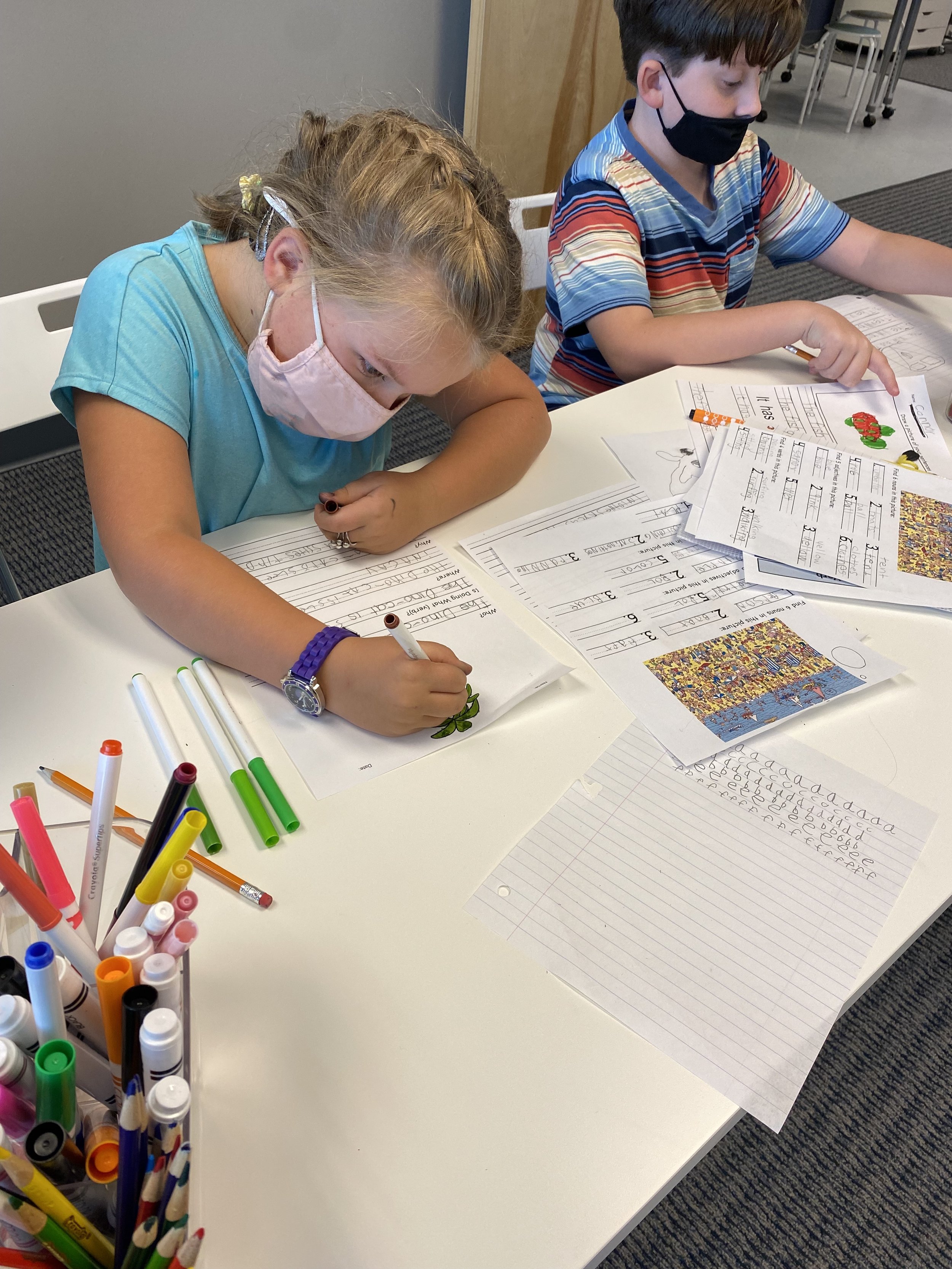
Written Expression
Given the complexity of the writing process, it is of little surprise that the vast majority of our students with deficits at any level of language processing or in the production of orthographic constructs (e.g. letters that make words) struggle to develop into fluent and proficient writers.
Using an evidence-based, structured, and explicit approach, The Barred Academy provides scholars with strategies and deliberate skills practice beginning at the word level. Beginning with strategies for self-evaluation of their physical and mental regulation towards a writing task, students are supported to use self-talk through modeled scripts that guide the writing process where they access explicitly taught mnemonic devices for structure, organization, and revision. In so doing, our approach lightens the cognitive load and enables students to put their ideas to paper with greater proficiency, and most importantly, a greater sense of ease.
Through their work, John R. Hayes and Virginia Berninger compiled over three decades of research related to the process of writing. Through their compilation, they discerned that within the three skills related to written expression (planning, translating, and reviewing) there are four, multi-layered cognitive processes impacted by four essential cognitive resources that we must access in order to produce cohesive text.
As writers we must have access to focused attention, long-term memory intact with applicable background knowledge (knowledge of genre, writing strategies, rhetorical devices, episodic knowledge, events, motor planning, letter form and production, vocabulary, spelling, grammar, syntax, and discourse schema), working memory, and the ability to read with fluency and automaticity.
Of course, access and use of these resources are then dependent upon a student’s linguistic experience, or in other words, the length of time, and depth of practice, one has with the structure, vocabulary, and social and/or cultural contexts of the language with which they are writing.

